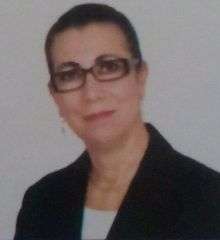2009 Algerian presidential election
Presidential elections were held in Algeria on 9 April 2009. The result was a victory for incumbent President Abdelaziz Bouteflika, who was re-elected with 90% of the vote.
| |||||||||||||||||
| Registered | 20,595,683 | ||||||||||||||||
|---|---|---|---|---|---|---|---|---|---|---|---|---|---|---|---|---|---|
| Turnout | 74.56% | ||||||||||||||||
| |||||||||||||||||
| |||||||||||||||||
 |
|---|
| This article is part of a series on the politics and government of Algeria |
|
|
|
Constitution
|
|
Executive
|
|
Background
The Council of Ministers announced on 3 November 2008 that a planned constitutional revision would remove the two-term limit on the presidency that was previously included in Article 74, thereby enabling Bouteflika to run for a third term.[1] The People's National Assembly endorsed the removal of the term limit on 12 November 2008, with only the Rally for Culture and Democracy (RCD) voting against its removal.[2]
Candidates
Thirteen candidates submitted papers to contest the election, but only six were approved to run:[3]
- Abdelaziz Bouteflika, incumbent president and leader of the National Liberation Front. Supported by the Democratic National Rally
- Louisa Hanoune, candidate of the Workers' Party
- Moussa Touati, candidate of the Algerian National Front (FNA)
- Mohammed Said, independent candidate supported by his Party of Justice and Liberty (which was not recognised at the time of the election)[4]
- Djahid Younsi, candidate of the Movement for National Reform
- Ali Fawzi Rebaine, candidate of Ahd 54
Although some urged former President Liamine Zéroual to run, he said in a published statement on 14 January 2009 that he would not, while also suggesting that it was not in the best interests of democracy for Bouteflika to run for a third term.[5]
RCD President Saïd Sadi announced on 15 January 2009 that the RCD would not participate in the elections, which he described as a "pathetic and dangerous circus", saying that to participate "would be tantamount to complicity in an operation of national humiliation".[2]
Bouteflika announced his independent candidacy for a third term at a rally in Algiers on 12 February 2009,[6] and officially submitted his candidacy on 23 February, shortly before the deadline.[7]
Results
The official turnout of 75% was disputed by the opposition, with some claiming it was as low as 16%.[8] Informal US Embassy observations placed it at "25–30 percent at most."[9]
| Candidate | Party | Votes | % | |
|---|---|---|---|---|
| Abdelaziz Bouteflika | National Liberation Front | 13,019,787 | 90.23 | |
| Louisa Hanoune | Workers' Party | 649,632 | 4.50 | |
| Moussa Touati | Algerian National Front | 294,411 | 2.04 | |
| Djahid Younsi | Movement for National Reform | 208,549 | 1.45 | |
| Mohammed Said | Independent | 133,315 | 0.92 | |
| Ali Fawzi Rebaine | Ahd 54 | 124,559 | 0.86 | |
| Invalid/blank votes | 925,771 | – | ||
| Total | 15,356,024 | 100 | ||
| Registered voters/turnout | 20,595,683 | 74.56 | ||
| Source: Electoral Studies | ||||
References
| Wikinews has related news: |
- "Algérie: vers la suppression de la limitation des mandats présidentiels" AFP, 3 November 2008 (in French).
- "Algerian opposition pulls out of 'pathetic' presidential vote", AFP, 15 January 2009.
- "Algerian poll contenders unveiled", BBC, 3 March 2009.
- Ahmed Aghrout (2009) "The presidential election in Algeria, April 2009" Electoral Studies Vol 29, pp171–195
- William Maclean, "Algeria ex-leader will not run for top job", Reuters (IOL), 14 January 2009.
- "Bouteflika seeks third term in office", Reuters (IOL), 12 February 2009.
- "Algerian president submits candidacy", AFP, 23 February 2009.
- "Rachad: 16 % was the real participation rate in the elections of 9 April 2009". Archived from the original on 2011-07-27. Retrieved 2011-01-24.
- Bouteflika reelected in heavily managed contest Wikileaks
.jpeg)
